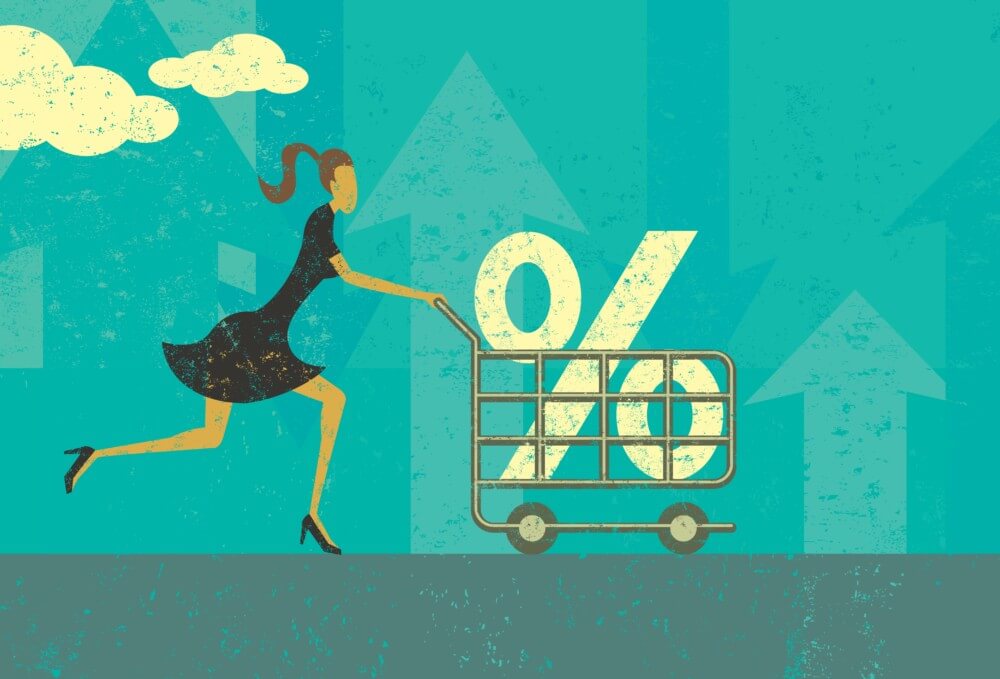Table of Contents Show
Mortgage interest rates are rising even though they’re going down now. A few short months ago, Wall Street forecasters almost unanimously stated that mortgage interest rates would go up. Virtually all real estate pundits agreed. You would have been hard-pressed to find a bookie to take a bet that rates would decline. Since the beginning of 2019, mortgage interest rates have dived. According to Freddie Mac, interest rates reached a 9-month low last week.
So, what’s up? And what does that mean for homebuyers?
Market crash & free money
Starting with the 2008 financial crisis and through 2015, interest rates were hovering close to zero. The Treasury Department had their printing presses running overtime. Most importantly, the Federal Reserve Bank was practically giving money away. Their objective; kick-start economic activity and revive the battered housing market.
It worked. The U.S. economy is experiencing the longest economic expansion in recent history. In the guise of super-low interest rates, free money is becoming a thing of the past. As a result, homebuyers are paying more in mortgage interest payments.
Which way the rated wind blowsWhich way the rated wind blows
In 2016, when mortgage rates averaged 3.44%, the Federal Reserve began to “normalize” rates. In other words, they increased them. Moreover, in 2018, the Federal Reserve raised rates four times. Starting in October of that year, rates were 4.87%. The Chairman of the Federal Reserve stated that rates would continue their rapid ascent for the foreseeable future.
Recently, however, the Federal Reserve Bank did an abrupt about-face. Instead of increasing interest rates, it did nothing. Surprisingly, Janet Yellen, the former Fed Chairman, stated that interest rates might go down. First, they’re up; then they’re down – what gives?
Confusion about what direction of interest rates will go is widespread. Homebuyers most acutely felt that confusion. The long-term impact on their wallet can’t be overstated. If buyers wait and rates increase, they may no longer afford a home. However, if they buy immediately and rates go down, they’ll pay tens of thousands of dollars more for their home.
Big bucks at stake for home buyersBig bucks at stake for home buyers
Most mortgage rate increases are small and don’t add much to the cost of buying a home. However, the cumulative effect of several small increases can stop a growing housing market in its tracks. It can also make buying a home unaffordable for tens of thousands of people.
You are buying a $400,000 home at the 2016 rate of 3.44% (assuming a 20% down payment). A one percentage point increase adds almost $185 to a buyer’s monthly mortgage payment. That’s over $2,200 in additional payments per year. Over the life of a 30-year mortgage, the buyer pays an additional $66,200. A person can buy a couple of mid-priced cars for that.
Up or down?Up or down?
When forecasters made their predictions of higher rates in 2018, the global economy was very different from today. Recent events, including December’s stock market rout, and the government shutdown, have contributed to slowing the U.S. economy. Now, there’s even talk of a recession. When the economy appears to be going south, interest rates usually follow.
Many respected forecasters think the doom and gloom are overstated. There is, however, one thing most of the tea leaf readers agree on go.
Barring some unforeseen economic or political calamity, mortgage interest rates will probably keep increasing, albeit slowly. The consensus is that there will be two .25% rate increases in 2019. This is based on a pronouncement by Jerome Powell, the Chairman of the Federal Reserve. Using our $400,000 home example, about $100 a month in increased mortgage payments.
Where interest rates are heading: the canary in the coal mineWhere interest rates are heading: the canary in the coal mine
Of course, nothing is etched in the stone, particularly regarding interest rates. Fortunately, a canary in the coal mine forewarned the direction of interest rates. And it hinges at the moment on one thing—the U.S.-China trade talks. If a deal is cut, mortgage interest rates will probably climb. If the talks fail, the economic doomsayers will take center stage, and rates will stay where they are or will fall.
Whatever happens, homebuyers should view this transaction as a lifestyle decision and a financial one. If you need a larger house now, buy one. Don’t dither. Predicting the direction of interest rates is an inexact science. What goes up may come down. Or maybe it won’t.

